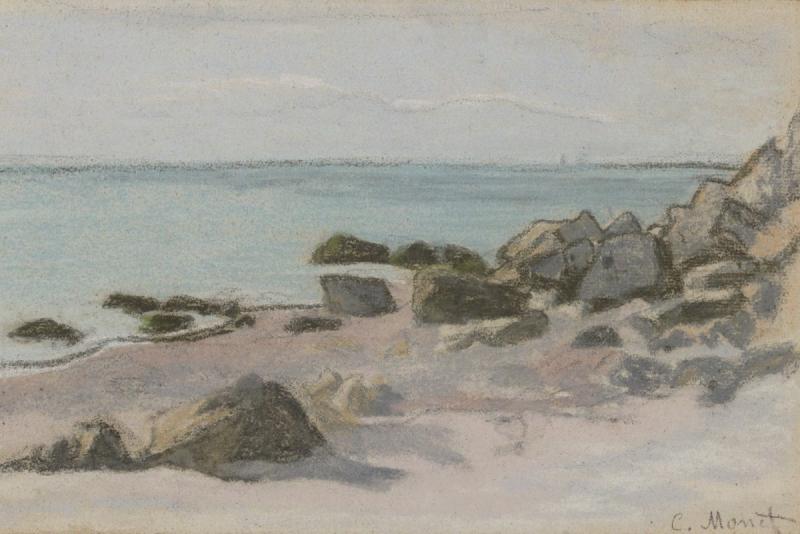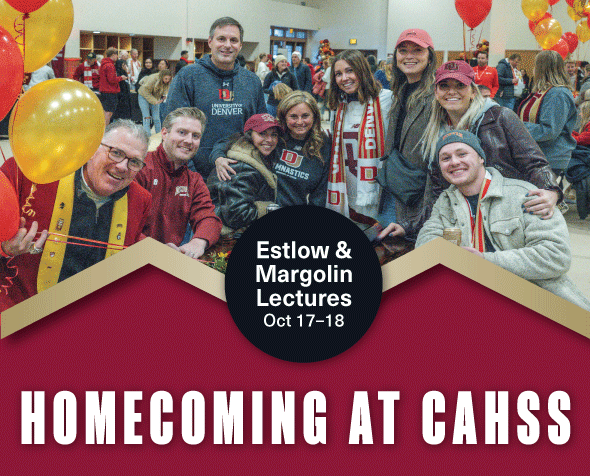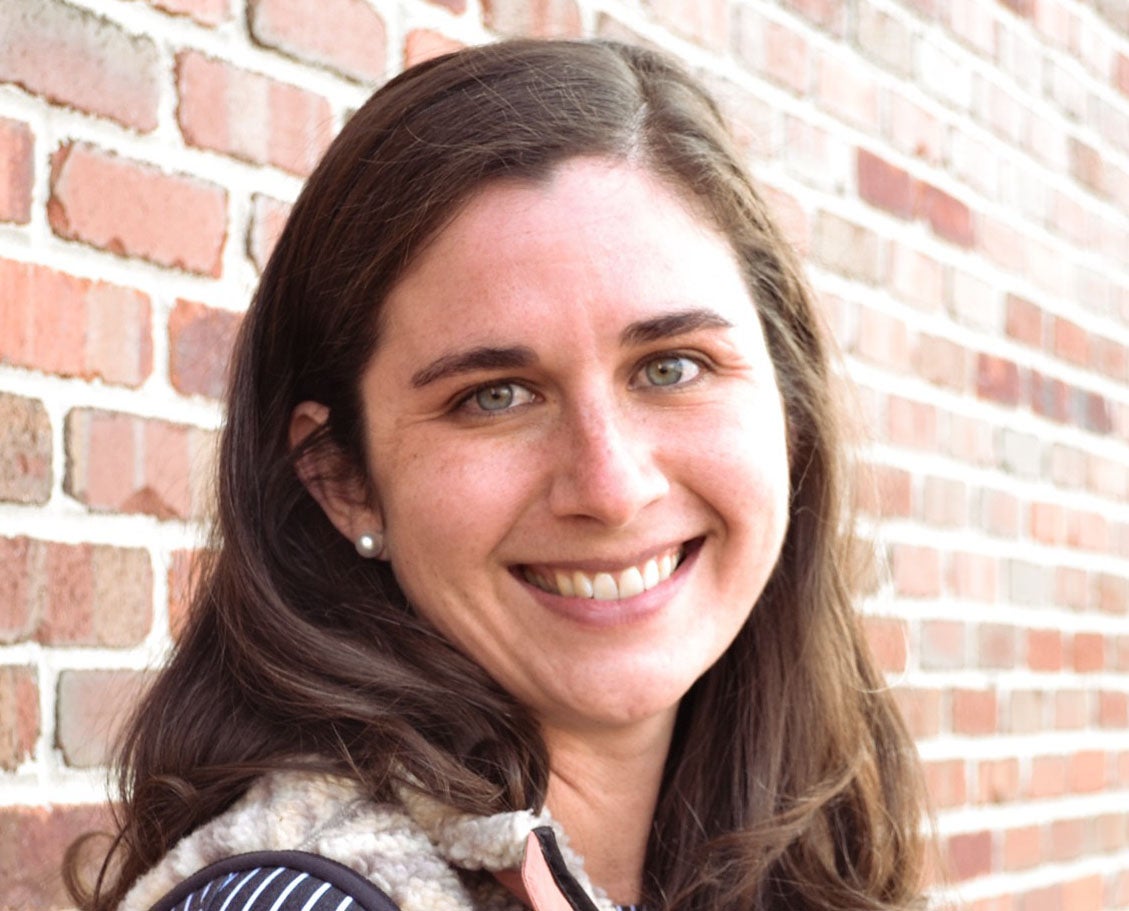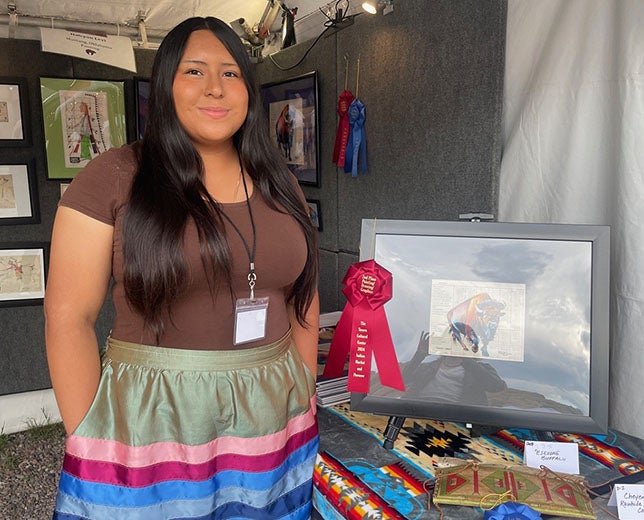Livingston Lecturer to Address Nazi-Looted Art, Trends in Provenance Research, Stewardship and Restitution

Recently identified Nazi-stolen Monet painting returned to heirs of original owners.
Register today to attend this year's Livingston Lecture on Tuesday, January 14, 2025 from 6-7 p.m. MT, featuring History Professor Elizabeth Campbell.
2025 Livingston Lecturer Elizabeth Campbell is a Professor of History and Founding Director of the University of Denver’s Center for Art Collection Ethics (ACE), established in 2018 and committed to promoting ethical art collection stewardship through social media, public events and on-campus training programs. An authority on art illicitly acquired by the Nazis in World War II, her latest book Museum Worthy: Nazi Art Plunder in Postwar Western Europe (Oxford University Press, 2024), examines Allied efforts to recover plundered art, and postwar restitution practices in France, Belgium and the Netherlands.
When Professor Elizabeth Campbell began conducting research on Nazi-plundered art in Europe she had no idea her study and conversations with Holocaust victim descendants would lead to raising global awareness and exposing the tangled roots of unethically acquired art and artifacts of all kinds.
It would also lead to the founding of ACE, today recognized as a national leader in the field and the only academic program of its kind in the United States providing provenance research training to emerging graduate students and professionals outside a degree program, according to Campbell.
In her upcoming Livingston Lecture Jan. 14, Campbell plans to examine recent cases involving Nazi-looted art and current trends in art provenance research, museum stewardship and restitution.
She will highlight a current bench trial against the Art Institute of Chicago being tried by the Manhattan District Attorney’s Office in New York. A ruling on the case, currently expected the week after Campbell’s talk, could signal a shift from civil to criminal law in the prosecution of art trafficking involving items once plundered by the Nazis.
While the Manhattan DA’s Office has pursued criminal cases over the past decade through its Antiquities Trafficking Unit, its claim to jurisdiction over Nazi-plundered items that passed through galleries in Manhattan only arose in 2023. A ruling against the Art Institute of Chicago could significantly raise the stakes for museums and collectors that may hold Nazi-plundered objects.
The case involves dueling narratives about the ownership history of the painting “Russian War Prisoner” by Egon Schiele, over which the District Attorney’s Office claims jurisdiction because the work was allegedly trafficked through a gallery in Manhattan.
“Did the painting go back to the family member who later sold it voluntarily, as the museum maintains? Or was it trafficked by a corrupt Swiss dealer known for trading Nazi-looted art? There are two very different provenance narratives in this case,” Campbell explained. “Plus, the Art Institute of Chicago argues that the Manhattan DA’s Office has no jurisdiction over items outside New York. Many people in the art world are eagerly waiting to hear the judge’s decision.”
Campbell’s lecture will also examine a case involving a Monet painting recently tracked down by the FBI to a couple in Louisiana who purchased it in 2019. Once the family learned the painting had been stolen from a Jewish family by the Nazis, they decided to relinquish it to the descendants.
“That’s exactly the kind of perspective that we’re trying to promote at ACE, by raising awareness that, in many cases like these, reaching a settlement with heirs of Nazi victims or returning objects is the right thing to do,” she said.
ACE draws on the breadth of expertise within the College of Arts, Humanities & Social Sciences (CAHSS) to train graduate students and emerging professionals working in disciplines related to anthropology, museum studies, Judaic studies, art and art history and library science.
ACE graduates include people working in museums and galleries across the country — from the Fowler Museum at UCLA and the Denver Art Museum to the Metropolitan Museum of Art in New York. The program also has attracted people working in the art market. “An important part of our work is training people who work at auction houses and galleries to spot the red-flag dealers who trafficked Nazi-looted art,” Campbell said.
ACE Alumnus Richard Montoux (’21), Post-Sales Lead: Contemporary & Classic European Art at Christie's, attended the ACE post-grad training program on Nazi-Era Art Provenance Research “and was impressed by the experience of the lecturers. Working in the art industry, this program gave me valuable tools to successfully research the provenance of art works. Establishing ownership is more critical than ever."
Campbell is currently conducting research for her next book comparing restitution cases involving works held in France, the Netherlands and the United States. “I want to include the U.S. because many works plundered by the Nazis ended up here, in museums or family collections,” she said.
Connecting her research to her work with ACE, she hopes to organize a symposium on Jewish cultural property in fall 2025. “The work is inherently interdisciplinary, and we would love to involve University Libraries, the Sturm College of Law, the Daniels College of Business and Josef Korbel School of International Studies for a campuswide event,” Campbell said. “We are just starting conversations with potential campus partners — stay tuned.”
She pointed out that ACE’s mission to serve the public good aligns with DU’s core mission. “We continue to dedicate ourselves to raising awareness not only related to Nazi-looted arts but to other areas of art collection stewardship.”
Located within DU and grounded in the ancestral lands of Indigenous peoples, ACE also offers programs on the ethical stewardship of Native American and Hawaiian items.
A U.S. federal law known as NAGPRA (the Native American Graves Protection and Repatriation Act) has been in effect since 1990. In the past year, the Department of Interior specified requirements for compliance by museums and other institutions, including informed consent from tribal communities and lineal descendants for the disposition and repatriation of human remains, sacred and funerary items and objects of cultural patrimony.
“At colleges and universities in the United States, this research and consultation with tribes must be a top priority,” Campbell said. “DU’s Museum of Anthropology led by Christina Kreps has long been a model of ethical stewardship.”
When asked about the future of art provenance research, Campbell explained that awareness of the need for provenance research stretches across collecting areas to include Nazi-plundered works conserved in a collection of Asian Arts or antiquities, for example.
Denver’s location makes it easier to engage in training and conversations related to art provenance, ethical stewardship and restitution, according to Campbell. “We like to think of our work here as pursuing ‘inland excellence’ beyond powerful institutions on the East and West coasts. With so many experts here in related fields, DU is the ideal place for this important work, serving the public good.”
The John C. Livingston Lecture in World History highlights a current CAHSS faculty member, and their work related to history.
Interested in providing fiscal support to ACE? Donate today.






